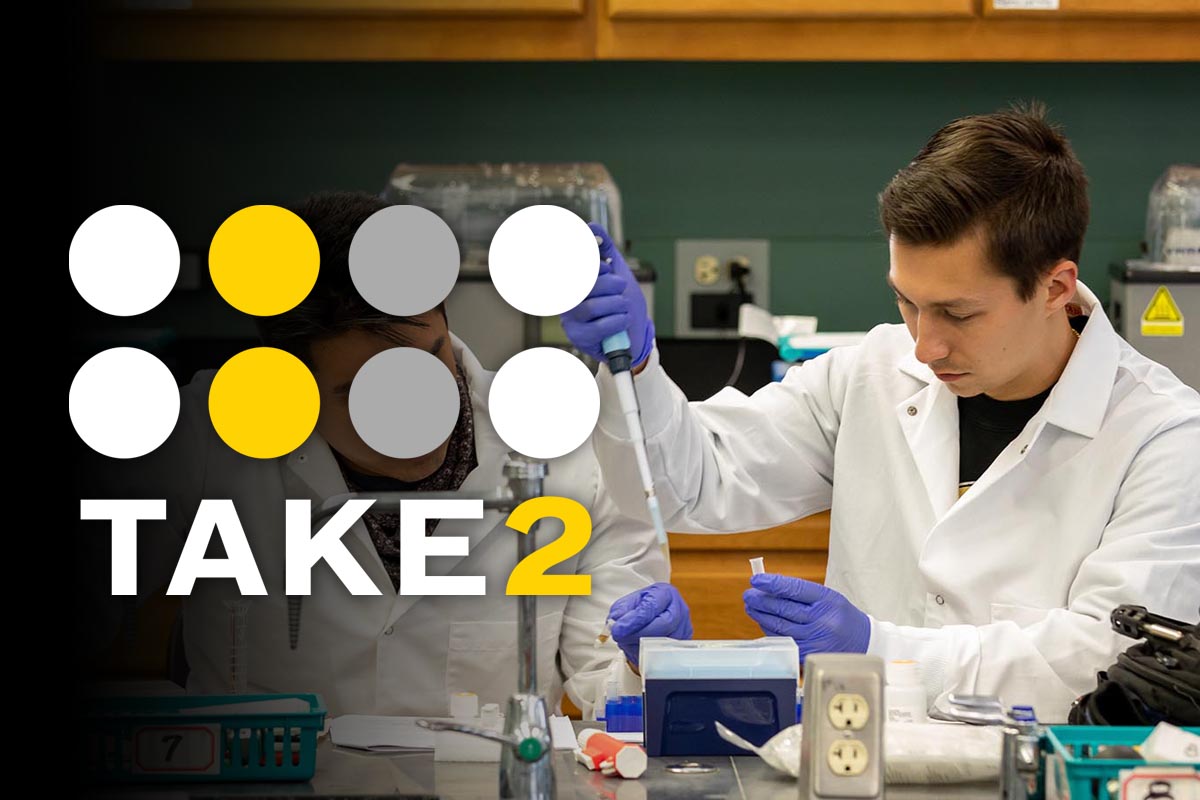Alumnae return for 2024 Women in Science panel
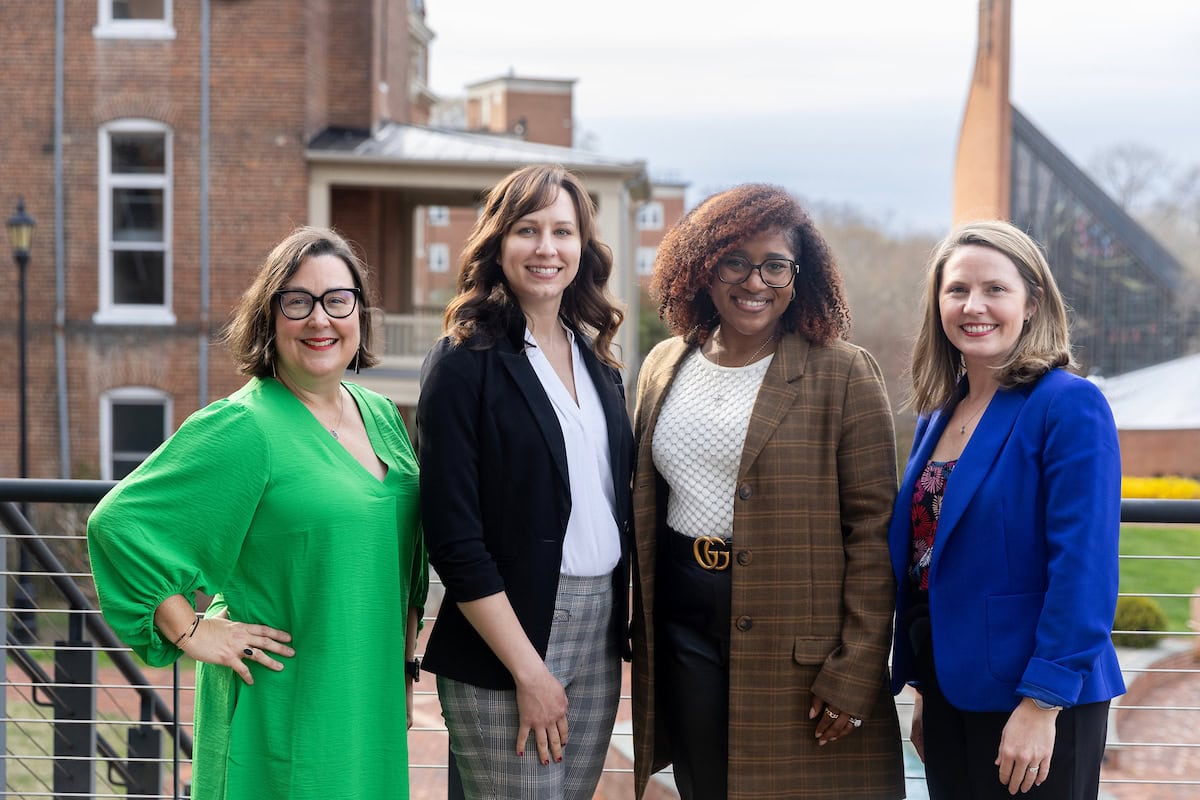
Courtney Carter Plaster ’92, Kristina Whately ’14, Bria Carlisle-Thaniel ’16, and Ashleigh E. Baber ’05
Ashleigh E. Baber ’05, Bria Carlisle-Thaniel ’16, Courtney Carter Plaster ’92, and Kristina Whately ’14 discussed their careers and offered advice to current students during Randolph’s Women in Science Panel on Friday.
The panelists work in a variety of fields—research, education, nonprofit—but agreed that their time behind the Red Brick Wall shaped their paths.
“Looking back, there were so many different experiences that inspired independence and confidence,” said Baber, a chemistry professor at James Madison University, citing her work as a lab assistant while at the College.
Carlisle-Thaniel, a research scientist with the United States Department of Defense, fell in love with lab work during a microbiology course and shelved plans for dental school to pursue a career in research.
Plaster, executive director of the Clean Valley Council, worked in museums for years and recalled how her own time in the lab with longtime biology professor Doug Shedd prepared her for museum collections work.
Whately, a postdoctoral research associate with UNC’s Lineberger Comprehensive Cancer Center, did independent research and, with funding from a RISE grant, presented at conferences, which gave her a leg up when applying to graduate schools.
The panelists talked about their experiences as women in the field and the importance of supportive mentors during the event, which was sponsored by Framatome and its chapter of U.S. Women In Nuclear.
“Being a woman in science is amazing,” Carlisle-Thaniel said. “I have been fortunate to have many supervisors and department heads who are women, so they actually were just opening doors and leading me throughout my career, every step of the way.”
Their discussion also touched on the traits that have helped them succeed—perseverance, empathy, and curiosity among them.
“For me, in all realms—research, collections, publications, education, and leading an organization—when you remain positive and people see that positivity, it’s contagious,” Plaster said. “I typically learn something new every day. I remain curious about everything, and I’m always asking why.”
They also encouraged students to take chances.
“Muster up the courage to take a shot, take a chance, and you never know,” Whately said. “You may get the opportunity and you’ll succeed. Or something better is out there waiting for you.”
Ashleigh E. Baber ’05, associate professor in the Department of Chemistry and Biochemistry at James Madison University
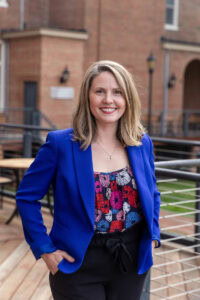
Ashleigh E. Baber ’05
Baber received her BS in chemistry from the College in 2005, followed by a PhD from Tufts University in 2011 and a postdoctoral position in the Catalysis Chemistry group at Brookhaven National Laboratory from 2011 to 2014.
At Tufts, she worked with low and variable temperature scanning tunneling microscopy to image individual atoms and molecules.
At JMU, her research group consists of undergraduate researchers using a homebuilt UHV surface analysis chamber to investigate the fundamental interactions of molecules with each other and metal single crystals. Her group focuses on modifying oxide nanoparticles supported on metals to drive selective chemical reactions.
Baber has been a 2018 Research Corporation Cottrell Scholar, a 2018 AVS Future Star, and a 2022 American Chemical Society Women Chemists Committee Rising Star.
She serves as director of the board for AVS, the professional society for Science and Technology of Materials, Interfaces, and Processing. She is also a co-founder and co-chair of the AVS Undergraduate Poster (UN) Session.
Bria Carlisle-Thaniel ’16, research scientist for the U.S. Department of Defense (DOD) and adjunct professor for Brightpoint Community College and Germanna Community College
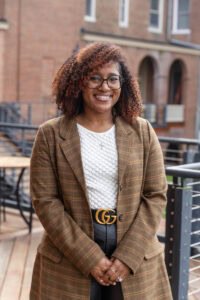
Bria Carlisle-Thaniel ’16
In her work as a research scientist for the U.S. Department of Defense, Carlisle-Thaniel conducts research for the DOD and Navy focused on protecting the security of our country.
She was previously employed as a lead biologist at ATCC (American Type Culture Collection), where she utilized a variety of microbiological techniques to propagate mammalian viruses in cell culture and embryonic chicken eggs.
She has worked in several research positions throughout her career and has gained many laboratory and research skills including microbiological, molecular, virological, and clinical chemical techniques.
Carlisle-Thaniel is also an adjunct professor at both Germanna Community College and Brightpoint Community College, where she teaches introductory microbiology and biology.
Courtney Carter Plaster ’92, executive director of the Clean Valley Council
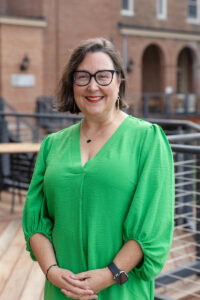
Courtney Carter Plaster ’92
Plaster, who studied biology at the College, has worked in the nonprofit world for more than 40 years.
Before joining the Clean Valley Council, she worked at the Virginia Museum of Natural History, Imagination Station Science Museum in Wilson, North Carolina, the Science Museum of Western Virginia, and the Virginia Museum of Transportation.
Her museum work included research, collections, publications, and science education.
She joined the Clean Valley Council in 2020 as director of education, before moving into the executive director role.
She serves on several environmental stewardship committees, including the Kiwanis Nature Park Committee with the Kiwanis Club of Roanoke, Resilient Roanoke Roundtable, Carilion’s Morningside Urban Farm Advisory Committee, Roanoke STEAM Day Planning Committee, Earth Day Roanoke Planning Committee, Roanoke City’s Bee City Planning Committee, and the HOPE for Heat Resilience project with Virginia Tech.
Kristina Whately ’14 PhD, postdoctoral research associate, University of North Carolina Lineberger Comprehensive Cancer Center
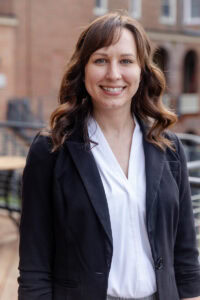
Kristina Whately ’14
Whately began her science career at Randolph, majoring in biology and minoring in chemistry. She earned her PhD in cancer cell biology from West Virginia University, where she studied mechanisms of metastasis in breast cancer.
She is currently a postdoctoral research associate at the University of North Carolina Lineberger Comprehensive Cancer Center. She has been working on lung cancer specific projects for three years and received a T32 training grant from the National Institutes of Health.
Her current research is focused on mechanisms of the relationships of different cell types within the tumor microenvironment, specifically between tumor cells and immune cells. She also investigates different drug therapy combinations and siRNA therapies in animal models for future clinical studies.
She is currently progressing in her career and will be promoted to senior scientist this July.
Tags: biology, chemistry, science festival, Science Matters, scifest 2024, women in science